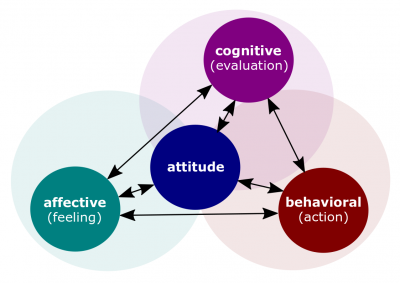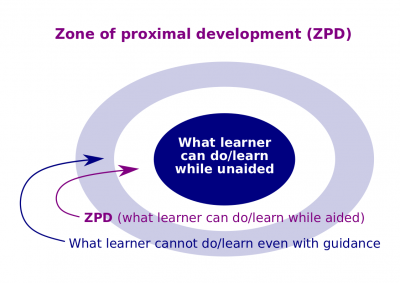Difference between revisions of "Training Targets"
| (20 intermediate revisions by 2 users not shown) | |||
| Line 1: | Line 1: | ||
[[Training Targets]] (hereinafter, the ''Lectio'') is the second [[lectio|lesson part]] of the '''[[Education Essentials]]''' [[lesson]] that introduces its participants to [[education]] and related topics. | [[Training Targets]] (hereinafter, the ''Lectio'') is the second [[lectio|lesson part]] of the '''[[Education Essentials]]''' [[lesson]] that introduces its participants to [[education]] and related topics. | ||
| − | [[File:Educaship-pipeline.png|400px|thumb|[[WorldOpp Pipeline]]]]This ''lesson'' belongs to the [[Introduction to Education]] session of | + | [[File:Educaship-pipeline.png|400px|thumb|[[WorldOpp Pipeline]]]]This ''lesson'' belongs to the [[Introduction to Education]] session of [[EmployableU Concepts]]. |
==Content== | ==Content== | ||
| − | The predecessor [[lectio]] is [[What | + | The predecessor [[lectio]] is [[What Training Is]]. |
| + | [[File:Attitude.png|400px|thumb|[[Attitude]]]][[File:Zpd.png|400px|thumb|[[Zone of proximal development]]]] | ||
| − | === | + | ===Script=== |
| − | : | + | :Obviously, learner can study anything on their own. If they need assistance, their ''educational objectives'' shall ideally be in the [[zone of proximal development]] ([[Zone of proximal development|ZPD]]). |
| − | : | + | |
| − | + | :This ''zone'' indicates the area that a learner can learn only if he or she is helped by a [[more competent other]]. ''ZPD'' lies in between the area that the learner can learn on his or her own and the area that the learner cannot learn even with the [[more competent other]]'s assistance. | |
| − | : | + | |
| + | :To be productive, [[training]] should target this ''zone of proximal development''. | ||
| − | + | :[[Training target]]s may belong to one or more of three [[development domain]]s. | |
| − | + | :The [[affective domain]] is concerned with [[emotion]]s and learners' well-being. This is about how well we feel. | |
| − | [[ | + | :The [[psychomotor domain]] is responsible for development of practical skills and [[action]]s. This is how well we behave. |
| − | :The [[ | + | :The [[cognitive domain]] targets development of [[perception]] and [[decision-making]]. This is about how well we understand. |
| − | : | + | :All of the three ''domains'' together define our [[attitude]]s. |
| − | : | + | ===Key terms=== |
| − | + | :[[Development domain]], [[cognitive domain]], [[affective domain]], [[psychomotor domain]], [[training target]], [[zone of proximal development]] ([[Zone of proximal development|ZPD]]) | |
| − | |||
| − | : | + | ===Closing=== |
| + | :Is the [[concept]] of [[training target]] explained well? --Yes/No/I'm not sure | ||
| − | + | '''[[Methods of Study]]''' is the successor [[lectio]]. | |
| − | + | ==Questions== | |
| − | == | + | ===Placement entrance exam=== |
Latest revision as of 20:55, 29 October 2023
Training Targets (hereinafter, the Lectio) is the second lesson part of the Education Essentials lesson that introduces its participants to education and related topics.
This lesson belongs to the Introduction to Education session of EmployableU Concepts.
Content
The predecessor lectio is What Training Is.
Script
- Obviously, learner can study anything on their own. If they need assistance, their educational objectives shall ideally be in the zone of proximal development (ZPD).
- This zone indicates the area that a learner can learn only if he or she is helped by a more competent other. ZPD lies in between the area that the learner can learn on his or her own and the area that the learner cannot learn even with the more competent other's assistance.
- To be productive, training should target this zone of proximal development.
- Training targets may belong to one or more of three development domains.
- The affective domain is concerned with emotions and learners' well-being. This is about how well we feel.
- The psychomotor domain is responsible for development of practical skills and actions. This is how well we behave.
- The cognitive domain targets development of perception and decision-making. This is about how well we understand.
- All of the three domains together define our attitudes.
Key terms
- Development domain, cognitive domain, affective domain, psychomotor domain, training target, zone of proximal development (ZPD)
Closing
- Is the concept of training target explained well? --Yes/No/I'm not sure
Methods of Study is the successor lectio.


